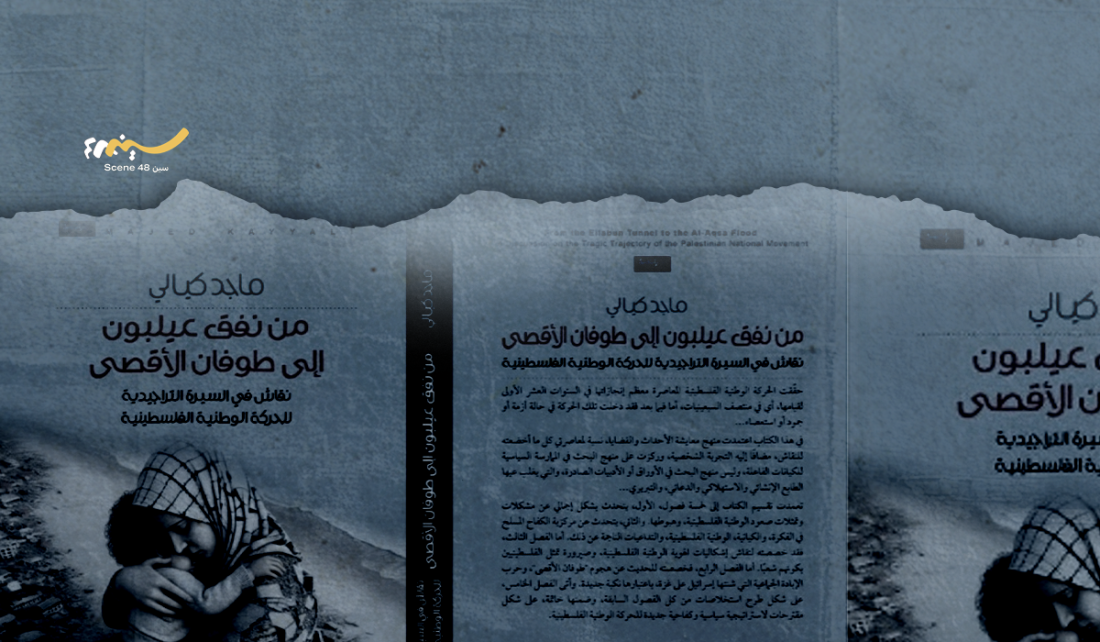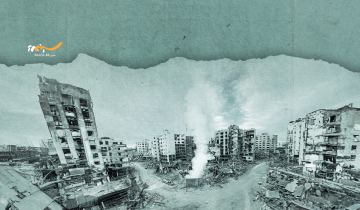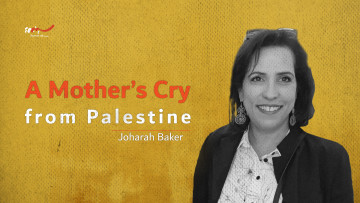Book Review of From the ‘Ailaboun Tunnel’ to ‘Al-Aqsa Flood’ by Majed Kayali

Palestinian author Majed Kayali is one of the most widely followed writers and researchers on the history, course and impact of the Palestinian national movement. Throughout his career, he has authored numerous works and participated in debates always presenting a critical perspective on Arab, Palestinian, and Israeli affairs. His work reflects his consistent nationalist stance and organic engagement with the key issues facing the Palestinian people, past, present, and future.
His latest book, From the ‘Ailaboun Tunnel’ to ‘Al-Aqsa Flood’, offers a comprehensive critical analysis of the Palestinian national movement from the mid-1960s to the ‘Al-Aqsa Flood’ events on 7 October 2023. Kayali aims to understand the roots of the current crisis and propose new strategies, learning from past failures.
Kayali insists the Palestinian (and wider Arab) struggle must be approached with national and ethical responsibility and a critical mindset. He argues constructive criticism is essential for correcting the national movement’s course and urges intellectuals not to abandon this role, warning that reluctance to embrace criticism often serves to protect narrow interests over the collective good.
He traces Palestinian struggle from its beginnings in the 1960s, focusing on Fatah’s emergence and the adoption of ‘armed struggle’. Support for Fatah and armed resistance stemmed from factors like Arab regime competition and the aftermath of 1967 defeat.
In chapters two and five, Kayali stresses that armed struggle was driven by regional and international interests, not organically from within Palestine. It relied on external funding and limited Arab support, with efforts constrained by scarce resources and poor coordination. Ultimately, armed struggle failed to achieve significant gains, and its future remains uncertain amid deteriorating conditions.
In chapter three he examines the deterioration of the national movement, linking it social factors and the fragmentation of Palestinian national identity, which was marginalized by an overemphasis on politics and armed struggle.
In this context, the author contends that Palestinian national identity, forged under duress after the 1948 Nakba, is complex and was denied the opportunity for organic development. It has been subjected to repeated attempts at fragmentation and erasure. He argues that Palestinian identity consists of multiple, historically contingent components. The Nakba was a formative event, but fragmentation, outside interference, and weak institutions—especially after the PLO was sidelined—have complicated identity. Kayali warns that such fragmentation risks further exclusion, and calls for a democratic national framework to reinforce unity, representative institutions, and reposition the Palestinian cause.
In chapter four, Kayali analyzes the crisis facing Hamas after October 7. He examines Hamas’s position, capacities, and lack of sustainable strategy. While the operation damaged Israel morally and politically, it also exposed flaws in Palestinian and Arab perceptions, and Hamas’s overestimation of its own capabilities. Israel’s response—a devastating war on Gaza—highlighted Hamas’s miscalculations and showed how Israel uses Hamas’s rhetoric to further its control and weaken Palestinian unity. Kayali argues that a balance between resistance and political struggle is essential to reassess options and safeguard Palestinian existence.
In the conclusion, Kayali calls for a bold, critical approach to evaluating the national movement, turning the page on a past that marked by reckless ventures and narratives detached from reality. He argues a strategy grounded in actual capabilities, blending political struggle with resistance, and prioritizing unity and practical coexistence.
The new strategy, he argues, should acknowledge the limits of Palestinian capabilities, adapt to international and regional dynamics, and strengthen society and its institutions. He rejects the notion that armed resistance alone can achieve national goals and advocates for diverse methods, including exploiting divisions within Israeli society and focusing on the unity of ‘people, land, and cause.’ He also stresses the need to reevaluate Palestinian political movements and the PLO to rebuild a unified national movement capable of overcoming stagnation.
In my view, the book distills Kayali’s thinking and approach, reflecting his deep knowledge and ethical commitment to advancing Palestinian interests. The text is a critical, sophisticated analysis that challenges past and current practices offers ideas for the future. It criticizes the national movement and its factions, condemns Israeli policies, and censures intellectuals reckoning as a path toward liberation and equality for all in Palestine.
The book is essential reading for anyone following the Palestinian issue and its implications for Arab, Israeli, and international affairs. I hope it will be translated into English to reach wider audience and contribute to efforts to correct the course of the Palestinian national movement, reshape the future, and challenge Israeli policies—all with the aim of enabling a decent, humane life for everyone in Palestine.
* From the ‘Ailaboun Tunnel’ to ‘Al-Aqsa Flood’... A Discussion of the Tragic Journey of the National Movement, is published by Arab Institute for Research and Publishing, Beirut-Amman, 2025.

Professor As‘ad Ghanem
Professor of Comparative Politics at the School of Political Sciences in University of Haifa.



